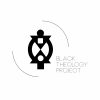Prepared and Submitted by the Samuel DeWitt Proctor Conference
In the spring of 2006, in the aftermath of Hurricane Katrina and its horrific destruction of lives and property, Dr. Iva E. Carruthers, general secretary of the Samuel DeWitt Proctor Conference, Inc., organized the Katrina National Justice Commission. The Commission was convened in three cities – Washington DC, Houston, and New Orleans – to hear first-hand testimony from those whose lives had been affected directly or indirectly by Hurricane Katrina. These men and women told of triumphs and tragedies that changed their lives forever. Their testimonies were indisputable accounts of both joy and pain, as they recounted stories that brought tears to the eyes of the listeners. They consistently cited the spontaneous assistance provided them by African American faith leaders – shelter, food, water, first aid, telephones, computers, prayers, and more. If communities of faith can provide a small amount of aid spontaneously, think how much more effective the relief effort could have been had those leaders had prior preparation in emergency and disaster relief.
The sad experience of citizens expecting and not receiving help from the federal government pointed to the need for faith leaders to prepare themselves and their congregations to provide the help. Many African Americans live along the Gulf Coast, areas most vulnerable to hurricanes, as well as in California, in cities most vulnerable to earthquakes, and in major metropolitan communities across the US, areas most vulnerable to weather emergencies, terrorist attacks or disease pandemics. In a disaster, African Americans cannot assume that others can or will provide all the assistance that is required. Accordingly, the Katrina National Justice Commission concluded that African American faith-based and community- based organizations must develop viable plans for emergency evacuation and disaster relief. The Commission affirmed the underlying principle for this work: that the African American community must build its capacity for emergency preparedness and self-sufficiency prior to and during times of disaster. This, it said, could be accomplished through training using a faith-based, culturally-sensitive emergency preparedness curriculum. Training in emergency preparedness would greatly improve the ability of African American faith leaders to provide help until first-responders or other assistance could arrive.
DOWNLOAD



Facebook Comments